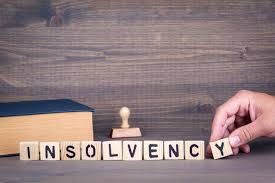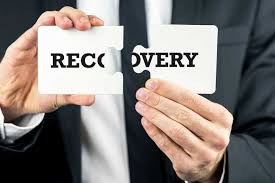


Mastering Debt Recovery and Insolvency: A Powerful Legal Guide for Financial Turnaround
Introduction
Debt Insolvency And Legal Perspectives;
Debt recovery and insolvency are critical components of the financial ecosystem, playing a pivotal role in maintaining economic stability. The complexities involved in these processes demand a nuanced understanding of legal frameworks and the practicalities of enforcement. At Chaman Law Firm, we offer unparalleled expertise in navigating these challenging terrains, ensuring our clients achieve optimal outcomes.
In today’s fast-paced and volatile business environment, managing financial obligations and recovering debts are critical concerns for businesses and individuals alike. As companies scale operations or expand into new markets, they often face challenges in ensuring that their receivables are paid in a timely manner. Unfortunately, delayed payments or bad debts can escalate into insolvency, threatening the survival of even the most promising enterprises. Against this backdrop, understanding the legal perspectives on debt recovery and insolvency becomes not only important but indispensable.
Debt recovery refers to the legal and procedural methods creditors use to retrieve money owed by debtors, particularly when those debts are overdue or in default. These recovery efforts may range from issuing demand letters and initiating negotiations to filing lawsuits and enforcing judgments through the courts. Insolvency, on the other hand, is a financial state wherein a person or company is unable to pay debts as they fall due. While insolvency is primarily a financial issue, it is governed by legal frameworks that dictate how insolvent estates are managed and how creditors can recover their dues in such situations.
One of the key elements in effective debt recovery is the existence of a clear and enforceable legal framework. In Nigeria, the legal system provides a number of avenues for debt recovery, including through civil litigation, arbitration, and enforcement of security interests. The Nigerian Companies and Allied Matters Act (CAMA) 2020, the Bankruptcy Act, and other relevant statutes guide insolvency proceedings. Legal practitioners, financial advisors, and corporate managers must work within this framework to minimize risks and maximize recoveries.
Insolvency proceedings can be either voluntary or involuntary. A debtor may voluntarily initiate insolvency proceedings to seek relief from debt obligations and restructure finances. Alternatively, creditors may initiate insolvency actions against a debtor who has failed to meet financial commitments. The legal tools available in such cases include winding-up petitions, receiverships, and restructuring arrangements under the supervision of the courts or regulatory agencies. These procedures are designed to protect the interests of all stakeholders and ensure an equitable distribution of the insolvent party’s assets.
From a legal perspective, one of the most powerful tools for debt recovery in Nigeria is the use of demand notices and pre-action protocols. These are formal documents that notify the debtor of their obligations and provide a window for settlement before legal proceedings commence. If a debtor fails to respond or settle the debt within the stipulated time, the creditor may proceed to court, where judgments can be obtained and enforced through garnishee orders, asset seizures, or bankruptcy petitions.
An important dimension to consider is the role of insolvency practitioners and the judiciary. Licensed insolvency practitioners play a central role in administering insolvency estates, investigating financial records, and distributing assets in accordance with the law. Courts, on the other hand, ensure due process and protect the rights of both creditors and debtors. In recent years, Nigerian courts have made significant strides in promoting creditor confidence through timely adjudication and enforcement of judgments.
There is also a growing emphasis on alternative dispute resolution (ADR) mechanisms in debt recovery. Mediation, negotiation, and arbitration offer quicker and less adversarial methods of resolving financial disputes. Many businesses prefer ADR for its cost-effectiveness and ability to preserve commercial relationships. Legal practitioners are increasingly incorporating ADR clauses into contracts to provide a first line of recourse in the event of debt default or insolvency.
Globalization adds another layer of complexity to debt recovery and insolvency. In cross-border transactions, debt recovery may involve multiple jurisdictions, conflicting laws, and international enforcement challenges. The UNCITRAL Model Law on Cross-Border Insolvency has been adopted by several countries to streamline processes, but Nigeria has yet to fully integrate these provisions into its legal system. This gap presents both challenges and opportunities for legal reform and international collaboration.
For business owners, understanding their rights and obligations in the context of debt and insolvency is crucial. Ignorance of legal processes can lead to costly mistakes, reputational damage, and irreversible financial losses. Whether you’re a creditor seeking to recover overdue payments or a business owner facing financial difficulties, obtaining sound legal advice can make all the difference. The ultimate goal is to foster a business climate where financial risks are minimized, debts are recoverable, and economic activities can thrive with legal certainty.
In summary, debt recovery and insolvency are critical aspects of financial management that require a nuanced understanding of legal principles and practical strategies. The legal perspective brings clarity, structure, and enforceability to what can often be an emotionally and financially charged process. As we delve deeper into this topic, we’ll explore key legislation, practical tips, and emerging trends that are reshaping the landscape of debt recovery and insolvency in Nigeria and beyond.
Understanding Debt Recovery
Debt recovery is the process through which creditors attempt to recover amounts owed by debtors. It involves various stages, including negotiation, litigation, and enforcement. Effective debt recovery requires a strategic approach that balances assertiveness with legal compliance.
Negotiation and Mediation
The initial stages of debt recovery often involve negotiation and mediation. These methods are less adversarial and can preserve business relationships. Mediation, in particular, is a voluntary process where a neutral third party helps the disputing parties reach a mutually acceptable solution. Chaman Law Firm excels in facilitating these discussions, ensuring that our clients’ interests are robustly represented.
Litigation
When negotiations fail, litigation becomes necessary. This involves taking legal action against the debtor to recover the owed amount. The litigation process can be lengthy and complex, requiring meticulous preparation and a deep understanding of the relevant laws. Our attorneys are well-versed in debt recovery litigation, providing clients with strategic advice and aggressive representation.
Enforcement of Judgments
Securing a judgment in court is a significant step, but it is not the end of the process. The judgment must be enforced to recover the debt. This can involve various methods, including garnishing wages, seizing assets, or placing liens on property. Chaman Law Firm has a proven track record in effectively enforcing judgments, ensuring that our clients receive what they are owed.
Insolvency: A Broader Perspective
Insolvency occurs when an individual or business is unable to meet their financial obligations. It is a state of financial distress that can lead to bankruptcy if not managed properly. Insolvency law provides mechanisms to deal with such situations, aiming to balance the interests of creditors and debtors.
Corporate Insolvency
Corporate insolvency involves complex procedures aimed at either rescuing the business or ensuring an orderly liquidation of assets. There are several routes a company can take, including administration, liquidation, and voluntary arrangements.
Administration
Administration is a process where an insolvent company is placed under the control of an appointed administrator. The goal is to rescue the company or achieve a better result for the creditors than an immediate liquidation would. Our firm has extensive experience guiding companies through administration, working to find viable solutions that protect our clients’ interests.
Liquidation
Liquidation involves winding up a company’s affairs by selling its assets to pay off creditors. This can be either compulsory (ordered by the court) or voluntary (initiated by the company’s directors). Chaman Law Firm provides comprehensive support during the liquidation process, ensuring that it is conducted efficiently and in accordance with legal requirements.
Voluntary Arrangements
Voluntary arrangements are agreements between a debtor and their creditors to repay a portion of the debts over time. This can be an effective way to avoid bankruptcy and provide creditors with some return. Our team at Chaman Law Firm excels in negotiating and drafting voluntary arrangements that are fair and sustainable.
Personal Insolvency
Personal insolvency can be equally complex, involving procedures such as bankruptcy and individual voluntary arrangements (IVAs). These mechanisms provide a structured way to deal with personal financial distress, offering a fresh start while ensuring creditors receive a fair share of the debtor’s assets.
Bankruptcy
Bankruptcy is a legal process where an individual’s assets are liquidated to repay creditors. While it can provide relief from unmanageable debt, it also has significant long-term consequences, including restrictions on obtaining credit and potential loss of assets. Our attorneys provide compassionate and strategic advice to individuals considering bankruptcy, helping them understand their options and navigate the process.
Individual Voluntary Arrangements (IVAs)
An IVA is a formal agreement between a debtor and their creditors to pay off a portion of the debts over a set period. This can be a more attractive option than bankruptcy, as it allows the debtor to retain control of their assets and avoid some of the more severe consequences of bankruptcy. Chaman Law Firm is adept at negotiating IVAs that balance the interests of debtors and creditors, providing a viable path to financial stability.
Cross-Border Debt Recovery and Insolvency
In today’s globalized economy, debt recovery and insolvency often have cross-border implications. This adds another layer of complexity, as different jurisdictions have varying legal frameworks and enforcement mechanisms. Chaman Law Firm has significant experience in handling cross-border cases, leveraging our network of international partners to provide seamless and effective solutions.
Legal Frameworks and Compliance
Navigating the legal frameworks governing debt recovery and insolvency requires a thorough understanding of both local and international laws. Compliance with these regulations is crucial to avoid legal pitfalls and ensure the enforceability of recovery efforts. Our firm stays abreast of the latest developments in insolvency law, providing clients with up-to-date advice and ensuring strict compliance with all relevant regulations.
Case Studies and Success Stories
At Chaman Law Firm, our track record speaks for itself. We have successfully recovered substantial amounts for our clients and guided numerous companies and individuals through insolvency. Here are a few examples of our successes:
1. Corporate Debt Recovery: We assisted a major manufacturing company in recovering over $2 million in outstanding debts from various international clients. Our strategic approach, combining negotiation and litigation, ensured a favorable outcome without lengthy court battles.
2. Personal Insolvency: Our team helped an individual avoid bankruptcy by negotiating an IVA that allowed them to repay a manageable portion of their debts while retaining their family home. This not only provided financial relief but also preserved their credit rating.
3. Cross-Border Insolvency: We successfully represented a multinational corporation in a complex cross-border insolvency case, coordinating with legal partners in multiple jurisdictions to achieve a comprehensive settlement that maximized asset recovery.
Conclusion
Debt recovery and insolvency are inherently complex processes that require specialized legal expertise. At Chaman Law Firm, we are committed to providing our clients with the highest level of service, combining deep legal knowledge with practical solutions. Whether you are dealing with corporate or personal financial distress, our team is here to guide you through every step of the process, ensuring your interests are protected and your goals are achieved.
For more information on how we can assist you with debt recovery and insolvency, please contact Chaman Law Firm today. Our team of experienced attorneys is ready to provide the support and guidance you need to navigate these challenging situations successfully.
By choosing Chaman Law Firm, you are partnering with a firm that has a proven track record of success in debt recovery and insolvency. Our strategic approach, comprehensive understanding of legal frameworks, and commitment to client satisfaction set us apart as leaders in this field. Let us help you achieve the best possible outcome for your debt recovery and insolvency needs.
As we conclude our exploration of debt recovery and insolvency from a legal perspective, it becomes evident that the intersection between financial distress and legal intervention is both complex and necessary. Whether for creditors seeking restitution or for debtors in need of relief, the legal system provides a structured framework for resolving disputes, allocating risks, and promoting economic continuity.
One of the primary takeaways from this discussion is that legal preparedness is the cornerstone of effective debt recovery. Creditors must take proactive steps in drafting clear contracts, incorporating enforceable clauses, and setting out dispute resolution mechanisms that can be activated in the event of default. These preventive measures can often deter default or facilitate quicker resolution. The use of personal guarantees, security interests, and retention of title clauses, for example, can significantly enhance a creditor’s ability to recover debts without resorting to prolonged litigation.
For debtors, the legal framework provides an opportunity for rehabilitation. Insolvency is not always the end of the road—it can be a pathway to restructure, reorganize, and relaunch with a more sustainable financial model. Legal tools such as debt moratoriums, company voluntary arrangements, and business rescue provisions allow debtors to stay operations while resolving outstanding obligations. These mechanisms not only benefit the debtor but also offer a better chance of repayment to creditors compared to outright liquidation.
However, for these legal processes to work effectively, they must be supported by a responsive and efficient judiciary. One of the major criticisms of debt recovery in Nigeria is the slow pace of court proceedings. Delays in hearing debt-related matters can erode the value of recoveries and weaken creditor confidence. Legal reforms aimed at fast-tracking commercial disputes—such as specialized commercial courts and electronic filing systems—must be expanded and properly funded to yield desired results.
There is also a need for broader public awareness and legal literacy. Many small and medium-sized enterprises (SMEs) in Nigeria are unaware of their legal rights or the processes available for recovering debts or handling insolvency. Government agencies, professional associations, and legal practitioners must work together to provide educational resources, workshops, and accessible legal services to empower businesses. This will contribute to a more resilient economy where financial disputes are resolved promptly and fairly.
Additionally, embracing technology can greatly improve the debt recovery process. Digital platforms for debt collection, case management, and court filing can reduce administrative burdens and speed up resolution times. Fintech innovations and credit monitoring tools can also help creditors assess risks and make informed decisions before extending credit. As the legal and financial worlds continue to merge through technology, stakeholders must stay agile and informed to remain effective.
From a policy standpoint, harmonizing Nigeria’s insolvency framework with international standards should be a priority. Ratifying and implementing the UNCITRAL Model Law on Cross-Border Insolvency would facilitate cooperation with foreign jurisdictions and improve Nigeria’s standing as a safe place for investment. It would also ensure that creditors dealing with cross-border debts can recover dues efficiently without being bogged down by jurisdictional hurdles.
In conclusion, the future of debt recovery and insolvency in Nigeria lies in a combination of legal sophistication, institutional reform, stakeholder education, and technological innovation. The law is not just a reactive tool but a proactive instrument for building trust, encouraging responsible borrowing, and sustaining economic growth. By strengthening legal processes and promoting ethical financial practices, Nigeria can foster a commercial environment where credit flows freely, debts are honored, and businesses thrive even in the face of adversity.
Whether you’re a creditor, a debtor, or a legal professional, understanding the nuances of debt recovery and insolvency is essential in today’s interconnected economy. Let this guide serve as a resource and reminder of the power of law in navigating financial challenges and creating sustainable solutions for all parties involved.
· Debt Recovery Services
· Insolvency Legal Expertise
· Corporate Debt Recovery
· Personal Insolvency Solutions
· Litigation for Debt Recovery
· Enforcement of Judgments
· Mediation in Debt Recovery
· Corporate Insolvency Management
· Administration and Liquidation
· Voluntary Arrangements
· Bankruptcy Advisory
· Cross-Border Debt Recovery
· Insolvency Law Compliance
· Strategic Debt Negotiation
· Financial Distress Solutions
Contact Us
Chaman Law Firm today. Our offices are conveniently located in Lagos, FCT Abuja, Ogun State, and the UK. We are readily available to assist you with your legal needs. Whether you require consultation, representation, or ongoing legal support, Chaman Law Firm is your trusted partner.
Call us at 08065553671 or email us at info@chamanlawfirm.com to schedule a consultation.


